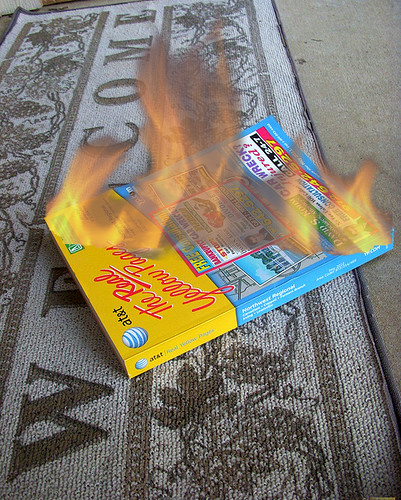My piece on how tweaking category names could double your traffic published today on Search Engine Land, and it seems nearly too easy to be possible, doesn’t it? Yet, miscategorized and under-categorized businesses abound online.
I sometimes forget that there are also optimizations possible for print directory advertisers, and an article from about a week ago in the Chicago Sun-Times reminds me how bad categorization has also been a problem for businesses in phonebooks as well. Neil Steinberg has done a biannual review of yellow pages since the nineties, and in this installation, “Marshall Field’s open in Yellow Pages“, he documents how yellow pages books are shrinking, advertisers are reducing their spend, and how some business listings appear in the wrong category — often to amusing effect.

In the article, he recounts how a few businesses are listed in the wrong categories, some of them for years.
He further recounts anecdotal assessments from a few businesses that print phone book usage has decreased. I know that a lot of business owners have become dismissive of the value of yellow pages, but there is still some percentage of usage in the medium. So, just as I recounted for internet marketing purposes, fixing miscategorization/undercategorization in print directories could increase your business.
So, check your phone books to make sure you’re appearing where you should. Are there other categories where you could/should appear? Are you getting weird phone calls or visits from people seeking some other type of business? You should be listed within your most-popular business category, and if you get weird visits/calls — ask the people doing it where they saw your business listed so you can get it fixed.
There’s another compelling reason for fixing your categorization, aside from getting more referral business from YP books. The data from YP books is one of the sources of info that feeds into online directories and local search engines. So, fixing your print listing can improve your presence everywhere else.




